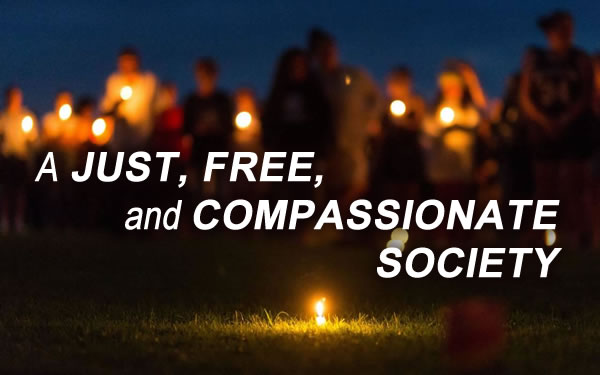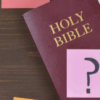Opinion piece
Dr Stuart Lange – National Director, New Zealand Christian Network
The Prime Minister of New Zealand has recently expressed the laudable view that we need a world which celebrates the diversity of its citizens and migrants. Absolutely so. People of all sorts of beliefs and worldviews want a society which is compassionate, respectful, just and free. We are right to resist any erosion of those values, and to consider very carefully what laws and behaviour best protects them.
The Christchurch events have raised concerns over on-line “hate speech”, which among other things helped incite appalling racist violence. The Folau controversy in Australia has opened up other important issues, in New Zealand as well, around freedoms of belief and expression, and whether people should lose their job for expressing (even when they are not at work) beliefs which some find offensive. At the same time, there is currently discussion in Government circles about legislation to prohibit “hate speech”. It is unclear yet what legislative changes may be proposed.
Protection of “minorities”
It is right that society welcome, respect and protect minorities. That is an expression of a just and humane society. It is unhelpful, though, to give any groups more rights than any other groups. All people should be treated equally, with the same rights and restraints.
The laws of this land need to be neutral, equally respecting the rights of belief and expression for people of all faiths, and of none.
In a changing society, it is increasingly problematical to assume which group is a majority, and which group is a minority, and what may happen later. Muslims and Buddhists, for instance, are both currently minorities. Christianity is often assumed to be the “majority” religion. But recent censuses have put Christian adherence at less than 50%. So are Christians now a minority too? The “secular” view is assumed by many to be the only view which should prevail. But is it a majority or a minority? The laws of this land need to be neutral, equally respecting the rights of belief and expression for people of all faiths, and of none.
Prejudice and “hate”
Discussion around possible legislative change often includes rhetoric about “hate”. Nobody doubts that true “hate” is destructive, both for those who are hated and those who hate. In terms of public policy and law, however, the word “hate” is not a useful word. It is too broad in meaning to be of any use. Human beings can say they “hate it” when something very trivial happens, or that they “hate” instant coffee. They can hate evil and injustice. They can harbour in their hearts prejudice or hate against other ethnicities and cultures. Occasionally, human beings can hate others with such vicious, demonic hatred that they actually want to hurt or kill people (as with murderers, terrorists, and genocidal despots such as Hitler). The last of those categories of hate – that which incites or commits violence – is clearly abhorrent and evil, and should always be unlawful.
Mild prejudice is not hate. All human beings have at least a little prejudice in them, influencing our views on politics, religion, sports, and many other things. Deep prejudice, however, can be associated with real hate. Racist hatred is especially repugnant, and needs to be actively discouraged. It is irrational, unjust, and cruel. But even the expression of racist views should be unlawful only when it is deliberately seeking to foster contempt and/or to incite racial violence.
Strongly prejudiced opinions can be irritating and offensive. We hear and read them every day, on public and social media. But the risk of being offended is the unavoidable price of freedom of belief and freedom of expression. It would be nice if many people were to tone down their opinions, especially those we disagree with. But there needs to be a high threshold before expressed opinions are deemed either “hateful” or unlawful. Society must strenuously protect freedom of belief and expression. Our liberty, our life, our society depend on those freedoms, and when they are curtailed we are letting go far too much.
Society must strenuously protect freedom of belief and expression. Our liberty, our life, our society depend on those freedoms, and when they are curtailed we are letting go far too much.
Politicised language
The word “hate” has become unhelpfully politicised. For instance, in many circles the meaning of “hate” appears to have become extended to include the expression of views that do not align with those of a particular community. Clearly, society must defend the right of that community to express and promote their beliefs. Equally, though, society must defend the right of other people to hold and express contrary views, including those beliefs some disagree with or find offensive, such as the belief (which is very widely held, and not just by Christians) that God intended marriage as the union of a man and woman.
To speak against beliefs we disagree with is everyone’s democratic right, and – unless we want tyranny – that right to freedom of belief and expression must cut both ways. To label as “hate speech” those views we disagree with, and to denigrate those who hold them, looks like vilification. To push for someone to lose their job for expressing their religious beliefs, as has happened with Folau, is a very disturbing encroachment on freedom of belief and expression.
A level playing field
In our multi-cultural, multi-faith society, most Christians do not want or require special privileges for themselves. All they really need is what everyone else needs: a society where there are equal freedoms of belief and expression, and freedom from discrimination, for people of all faiths, and for people of no faith. A society where any person, whether religious or secular, is free to believe and express and live by the tenets of their faith, without fear of censure, or of losing their job, or of public vilification. A society where believing in your creed (Christian, Muslim, or whatever) or publicly quoting your holy book will not lead to getting into trouble with the law, your educational provider, your employer, your professional body, or being censured by the media. A society where everyone remains perfectly free to promote both secular views and religious views, without discrimination. A society where anyone may express and advocate any belief about culture, religion, morality, or marriage, without any fear of being labelled as “unsafe”, just because someone might be offended. What do we need to ensure a free society? Freedom of belief and expression for all: a level playing field.
What do we need to ensure a free society?
Freedom of belief and expression for all: a level playing field.
Respect and restraint
Regardless of the laws around public discourse, and how they might be shaped, both secular people and people of faith do well to speak and act with goodwill and respect for all others, out of a sense of common humanity, and a desire to preserve the peace of our free and diverse society. We should speak the truth as we see it, but do so with kindness and respect. Being deliberately offensive has never been good behaviour. Christians, who believe that Jesus is the perfect revelation and embodiment of God, have a superb example to follow: he spoke enduring truth, with infinite grace and compassion.
Dr Stuart Lange
National Director, New Zealand Christian Network









0 Comments